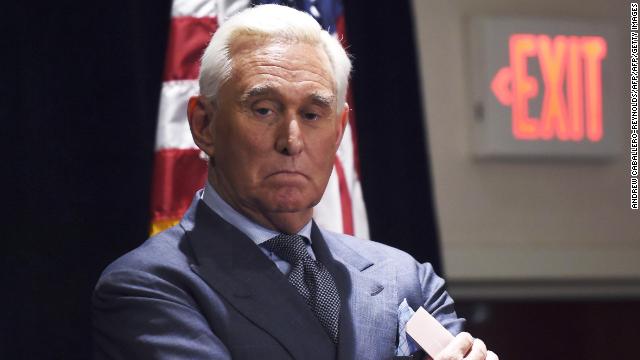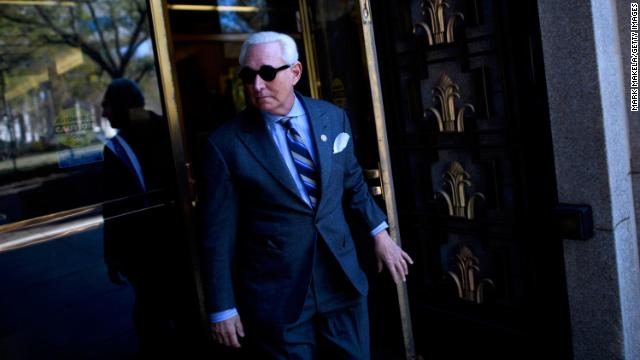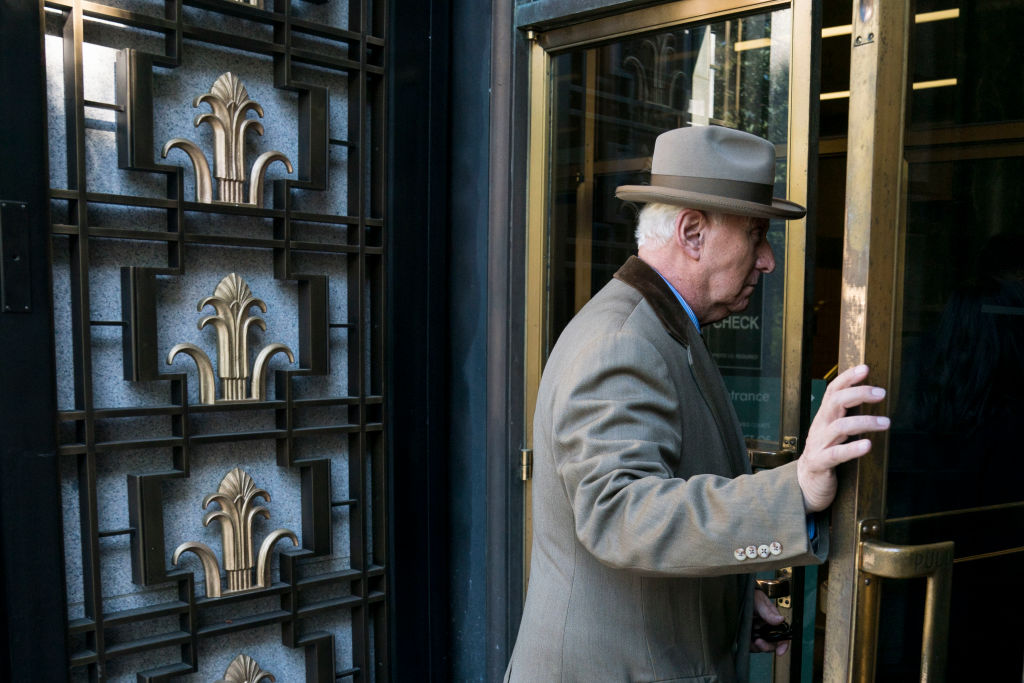
Roger Stone is a bullish and flamboyant right-wing gadfly, always a phone call away from President Trump or anyone else who wants to talk, and a résumé that dates back to the Nixon years.
Stone's resume was compelling enough to inspire a Netflix documentary, "Get Me Roger Stone," chronicling his life in national politics — one that began as a trickster for Richard Nixon, endured a scandalous setback in the mid 1990s and reemerged in the last two decades as, among other things, a voice directing Donald Trump toward the presidential trough.
"I was like a jockey looking for a horse," Stone says in the film. "You can't win the race if you don't have a horse. (Trump's) a prime piece of political horse flesh in my view."
But Stone's ride ended early. He was fired by Trump's campaign in August 2015, relegated — or so it seemed — to the that vast swirling orbit of off-the-books Trump whisperers. But his influence remained apparent through the primaries and into the general election contest with Hillary Clinton. When Trump decided to fire FBI Director James Comey in early May, he did it with a push from Stone.
Whether Stone has a personal connection to, or possessed any forward knowledge of alleged Russian interference in the 2016 campaign remains to be seen. In March 2017, he downplayed contacts with "Guccifer 2.0," an online personality who has claimed responsibility for the DNC hack, denying any potential collusion.
Days later, Stone was again in his natural habitat — the headlines — after he volunteered to speak with the House Intelligence Committee investigating Trump and Russia about his role as a campaign associate.
"I acknowledge I am a hardball player. I have sharp elbows. I always play politics the way it is supposed to be played," Stone told CNN in typically theatrical tones. "But one thing isn't in my bag of tricks — treason."

